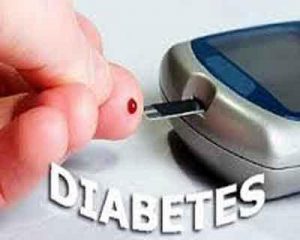- Home
- Editorial
- News
- Practice Guidelines
- Anesthesiology Guidelines
- Cancer Guidelines
- Cardiac Sciences Guidelines
- Critical Care Guidelines
- Dentistry Guidelines
- Dermatology Guidelines
- Diabetes and Endo Guidelines
- Diagnostics Guidelines
- ENT Guidelines
- Featured Practice Guidelines
- Gastroenterology Guidelines
- Geriatrics Guidelines
- Medicine Guidelines
- Nephrology Guidelines
- Neurosciences Guidelines
- Obs and Gynae Guidelines
- Ophthalmology Guidelines
- Orthopaedics Guidelines
- Paediatrics Guidelines
- Psychiatry Guidelines
- Pulmonology Guidelines
- Radiology Guidelines
- Surgery Guidelines
- Urology Guidelines
Breast feeding for 6 months cuts diabetes risk in half: study

Miami: Women who breastfeed their babies for six months or more may be able to cut their risk of developing diabetes in the future by nearly half, according to a study Tuesday.
The findings from a three-decade US study of more than 1,200 white and African-American women were published in the Journal of the American Medical Association (JAMA) Internal Medicine.
"We found a very strong association between breastfeeding duration and lower risk of developing diabetes, even after accounting for all possible confounding risk factors," said lead author Erica Gunderson, a senior research scientist with Kaiser Permanente.
The study showed that women who breastfed for six months or more across had a 47 percent reduction in their risk of developing Type 2 diabetes, when compared to those who did not breastfeed at all.
For women who breastfed for six months or less, there was a 25 percent reduction in diabetes risk.
Researchers suggested that breastfeeding may unleash protective effects via hormones that act in the pancreas, controlling blood insulin levels and blood sugar.
"The incidence of diabetes decreased in a graded manner as breastfeeding duration increased, regardless of race, gestational diabetes, lifestyle behaviors, body size, and other metabolic risk factors measured before pregnancy, implying the possibility that the underlying mechanism may be biological," Gunderson said.
Previous research has shown that breastfeeding has other long-term benefits for mothers, including a lower a risk of breast and ovarian cancer.

Disclaimer: This site is primarily intended for healthcare professionals. Any content/information on this website does not replace the advice of medical and/or health professionals and should not be construed as medical/diagnostic advice/endorsement or prescription. Use of this site is subject to our terms of use, privacy policy, advertisement policy. © 2020 Minerva Medical Treatment Pvt Ltd